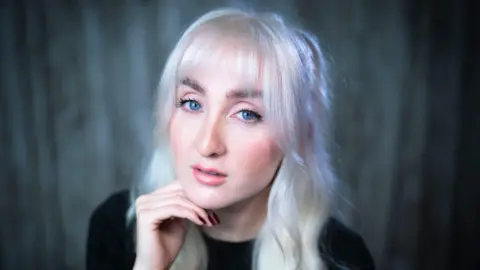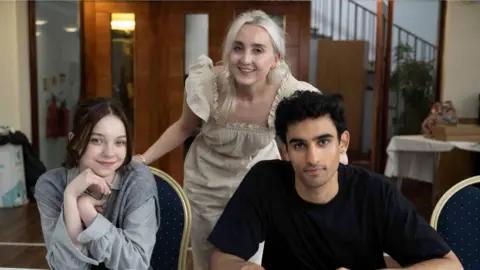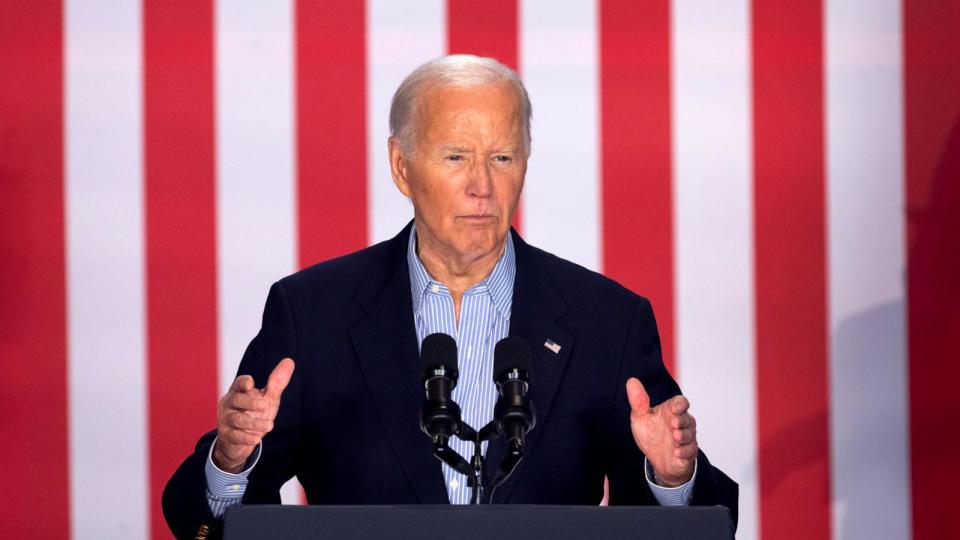World News
Washington Post Shake-Up Renews Attention on U.K. Phone Hacking

In 2011, Rupert Murdoch’s media empire, News Corporation, faced a grave threat in Britain. Reporters at one of his tabloid newspapers were exposed for hacking the phones of celebrities, private citizens and, in one case, a murdered child for information.
Other misdeeds soon emerged, including the revelation that for years, tabloid reporters had paid for information from police officers and government officials.
Desperate to stop the scandal and appease prosecutors in Britain and abroad, News Corp tapped Will Lewis, a former editor of The Daily Telegraph, to clean up the mess.
He did just that. In his telling, he cooperated with the authorities, revealed wrongdoing and helped set the operation on a new course. Some former colleagues and hacking victims, though, long believed that he helped News Corp cover up the extent of the wrongdoing.
Those accusations — nearly 15 years old and unproven — suddenly have fresh currency and have complicated Mr. Lewis’s new job as publisher of The Washington Post.
Last month, while Mr. Lewis prepared to restructure the Post newsroom, a judge in London ruled that victims of phone hacking could press ahead with more allegations in their wide-ranging lawsuit. Though Mr. Lewis is not a defendant, the lawsuit asserts that his cleanup was in part a cover-up to protect News Corp leaders.
This week, Mr. Lewis was caught off guard when The Post’s executive editor quit ahead of his reorganization. Then, The New York Times reported that Mr. Lewis had told her that covering the legal developments in the hacking case represented a lapse in judgment.
An NPR reporter followed with revelations that Mr. Lewis had offered him a scoop in exchange for not pursuing an article about the phone-hacking scandal.
Now his newsroom overhaul seems much more complicated, with his reporters questioning Mr. Lewis’s vision, his decision to hire two former underlings as top Post editors and whether he shares their ethics.
The Post, in a statement, said he does: “As a highly experienced publisher, and ex editor and editor in chief, William is very clear about the lines that should not be crossed and his track record attests to that.”
Mr. Lewis came to The Post after serving as publisher of The Wall Street Journal. But he cut his teeth in Britain, a country where journalists paid for scoops, hacked into phones and secretly taped politicians. The Telegraph’s biggest scoop under Mr. Lewis came when his reporters paid more than $150,000 for confidential information on politicians’ expense claims.
Such tactics are considered unethical in most American newsrooms, including The Post, the paper that changed the course of national news with its coverage of Watergate, C.I.A. black sites and other major stories.
Now, reporters there are wondering whether he will bring new journalistic sensibilities, and ethical standards, to Washington.
“It looks that way,” said Paul Farhi, who until late last year covered media for The Post. “Hiring his cronies, basically protecting his own backside by talking down stories that don’t make him look so good. These would be unknown things at The Washington Post.”
A British Brouhaha
The phone-hacking scandal began with revelations that tabloid journalists in Britain had hacked into the phones of celebrities, sports stars and politicians, among others, to get scoops.
The fallout was tremendous, with a yearlong public inquiry and allegations in criminal and civil courts. One tabloid newspaper, the News Corp-owned News of The World, folded. The costs related to the episode now top $1 billion, including damages to hundreds of victims.
Until 2010, Mr. Lewis had nothing to do with those issues. He was the editor of The Daily Telegraph, a broadsheet outside the Murdoch empire. Under his tenure, it broke a scandal about politicians’ using government expense accounts to fund lavish personal expenses. Mr. Lewis later acknowledged that the newspaper paid about 150,000 pounds (about $190,000 today) for the documents.
He joined News Corp in 2010 and a year later was tasked with dealing with the phone-hacking fallout.
“He was a good choice, in effect,” said Mr. Farhi, who covered the scandal at the time. He said Mr. Lewis was well respected in British media circles. “His ethics were not in question.”
Mr. Lewis joined a small team called the Management and Standards Committee that attempted to ascribe blame for the problems, ferret out other wrongdoing and prove that News Corp was committed to cleaning up its act.
As part of that effort, the committee provided the police with detailed information on journalists who hacked into phones or paid public officials. Some journalists complained that they were being blamed for what had been accepted practices.
“He oversaw the throwing under the bus of journalists acting under standard procedure for decades,” said Dan Evans, a former News of The World reporter who was prosecuted, provided evidence to the authorities and has since called for press reform. “It’s the way things were done.”
Mr. Lewis has seldom discussed this period of his career, but, when he has, he has described himself as cleaning up a mess.
“My role was to put things right,” he once told the BBC. “And that is what I did.”
“I did whatever I could to preserve journalistic integrity,” he told The Post recently.
Accusations of a Cover-Up
In court documents, phone-hacking victims say that Mr. Lewis allowed the deletion of huge volumes of emails that could have implicated senior News Corp figures in the scandal. The lawsuit claims that, on his watch, eight filing cabinets full of potential evidence disappeared.
The plaintiffs say that, rather than turning over everything to the authorities, he ignored information that could have implicated senior executives. They assert that he was part of a scheme to fabricate a security threat to justify deleting emails.
He has denied wrongdoing. The lawsuit is one of many that have long swirled around the hacking affair. Many plaintiffs, including celebrities like Elton John, settled their cases. Others, like Prince Harry, continue to press their case.
Soon after some allegations surfaced in 2020, Mr. Lewis was passed over to be director general of the BBC, arguably Britain’s most prominent media job.
Mr. Lewis’s work on the Management and Standards Committee placed him within Mr. Murdoch’s inner circle, and he was promoted in 2014 to lead Dow Jones, which publishes The Wall Street Journal.
But his work on the committee infuriated many staff members at News Corp’s British newspapers. Some believed that low-level reporters had been sacrificed, as Mr. Evans describes it, “to keep his boss out of an orange jumpsuit.”
Though he was often in London as Dow Jones chief executive, Mr. Lewis rarely turned up in the company’s main office there, which shared space with The Sun, a tabloid newspaper where some News of the World staff went to work after it was closed. Instead he worked from a building miles away, former employees recalled.
The Future of The Post
The phone-hacking scandal might have been old news had it not been for a shake-up at The Post.
The newspaper’s owner, Jeff Bezos, appointed Mr. Lewis to be publisher late last year, and he began laying plans to split the paper into three sections: core news, which would include business and politics coverage; opinion; and a new, reader-friendly section focused on service journalism.
The Post’s executive editor, Sally Buzbee, urged him not to make such a drastic change before the election in November. Mr. Lewis went ahead with it and offered Ms. Buzbee a job running the paper’s new section, an apparent demotion.
She abruptly quit last Sunday.
Soon after, The Times revealed that Mr. Lewis had scolded Ms. Buzbee over the newspaper’s coverage of the hacking lawsuit. He disapproved of plans to write about a judge’s ruling — which The Post ultimately covered — that cleared the way for plaintiffs to air allegations against him.
Then came the account from David Folkenflik, a veteran media reporter for NPR, that Mr. Lewis had offered a deal in exchange for quashing an article.
“In several conversations, Lewis repeatedly — and heatedly — offered to give me an exclusive interview about The Post’s future, as long as I dropped the story about the allegations,” Mr. Folkenflik wrote. He did not take the deal.
Mr. Lewis told The Post on Thursday that his conversation with Mr. Folkenflik was off the record and had occurred before he joined The Post. He labeled Mr. Folkenflik “an activist, not a journalist.”
Some politicians and press officers do offer to trade access for favorable coverage. But accepting such a deal would violate most newsroom norms. So such an offer from the incoming publisher of The Post is unusual and surprised journalists in and out of the newsroom.
“He’s using his position to protect his public image,” Mr. Farhi said. “It’s the thing reporters get a whiff of, and they think someone’s hiding something.”
World News
Holly Jackson: ‘Obviously, I love murder

 Holly Jackson
Holly JacksonBestselling author Holly Jackson shares her secrets for plotting a modern murder mystery – and explains how true crime has influenced her.
For the author of A Good Girl’s Guide to Murder, the process of writing a whodunnit is as meticulous as investigating a crime.
“I am obsessive about it,” she says. “I don’t quite have a ‘murder board’ because it’s not on the wall, but it is on the floor.”
Each scene in one of Holly’s books corresponds to an index card, which is then carefully placed into columns for each act in the story. The author admits this “does rather take over the room”.
While this is great for planning a storyline, Holly says opening her office door a “bit too ferociously” can literally blow her plot out of place.
A Good Girl’s Guide to Murder follows plucky heroine Pip Fitz-Amobi as she investigates a closed murder case. Pip soon finds a co-detective in Ravi Singh, whose brother was implicated in the crime.
Each clue, twist and turn in the story has been thoroughly discussed by Holly’s fans on TikTok; the hashtag for A Good Girl’s Guide to Murder – #agggtm – has more than 58,000 posts.
And the story has now been turned into a BBC drama by lead writer Poppy Cogan, with Holly serving as executive producer.
The Guardian called the series a “very modern Nancy Drew,” with fans on TikTok praising the show, stitching their reactions with clips from the new series.
The BBC spoke to Holly about the process of writing her hit novel. “Obviously, I love murder,” she says, “fictional murder.”
‘I need true crime in my ears’
Holly, 31, from Buckinghamshire, published her debut in 2019. She won a British Book Award the following year and has sold millions of copies around the world.
While her fiction fits into the young adult category, Holly does not shy away from heavier topics, like crime. Her first novel, for example, follows the disappearance and apparent murder of a school girl.
And Holly says true crime content – like the podcast Serial – became a “very useful” tool when writing A Good Girl’s Guide to Murder. The structure of the book feels like a podcast, Holly says, adding: “We have transcripts of dialogue the whole time.”
In the sequel to Holly’s first book – called Good Girl, Bad Blood – Pip even creates a true crime podcast herself.
And Holly says this research tool soon seeped into her real-life. “I can’t really do anything without a true crime podcast,” she says. “If I’m walking the dog or washing the dishes, I need true crime in my ears.”
Allow TikTok content?
In the last ten years, true crime series have won international acclaim: Serial won a Peabody Award in 2015 and In The Dark – a long-form investigative journalism series – became the first podcast to win a George Polk Award in 2019. And, according to The New York Times, Serial has had more 705m downloads.
Even Holly is curious why crime is such a popular source of entertainment.
“Especially with young women,” she wonders, “is that like, an instinct in us that’s trying to protect ourselves?”
Georgia Hardstark is the co-host of My Favorite Murder, a US podcast that looks into historic and modern cases, with one episode covering the Dancing Plague of 1518 and the Paper Bag Killer.
For Georgia, part of the reason she is so interested in true crime is that it helps her feel less “paranoid” and validates her anxieties about life, she explains.
“That is at the forefront of my mind, constantly, you know, ‘What’s around the next corner? Are my doors locked?'”
‘I know who the murderer is’
For Holly, the line between fact and fiction is clearly drawn: unlike true crime cases, she always knows “the ending before I even write the first sentence”.
“I knew from the get-go who the murderer was going to be, this whole setup,” she says. “The slightly more complicated thing is not working out the mystery – it’s working out how Pip is going to solve the mystery.”
In A Good Girl’s Guide to Murder, for example, Pip uses her Extended Project Qualification – an accreditation where a student independently researches a given topic – to interview suspects and keep track of clues for the case.
 BBC/Moonage/Sally Mais
BBC/Moonage/Sally MaisWhile Holly uses true crime as a “jumping off” point for research, she notes the content, often used as a source of entertainment, is “obviously, about real life people’s trauma”.
Jessica Jarlvi – a “Scandi-noir” writer and lecturer on the University of Cambridge’s Crime and Thriller Writing course – says things like true crime podcasts risk sensationalising these events.
“It just puts me off,” she says, “whereas in fiction, you don’t have to worry about that.”
In Georgia’s view, however, ignoring real-life crime – often with women victims – “is to sweep it under the rug”.
‘I don’t have passive readers’
Modern crime readers are “becoming more and more demanding”, Jessica adds.
Holly agrees: “I don’t have those passive readers, I have the really active ones who are looking to solve the mystery.”
On TikTok, fans of A Good Girl’s Guide to Murder share videos with their predictions and suspect lists as they read along with the book.
In one video, a reader guides people on how to annotate the book to keep track, colour co-ordinating sections into “clues” and “conflicts”.
“It makes me have to up my game a bit more,” Holly says.
Wondering how to watch A Good Girl’s Guide to Murder? You can stream the series on BBC iPlayer.
World News
For sale: A piece of California’s country music history


The famed Buck Owens Crystal Palace, where music legends including Willie Nelson, Dwight Yoakam, Garth Brooks and a young Taylor Swift have played, is up for sale, with the foundation that runs the Bakersfield venue planning to list it for $7 million on Monday.
The nightclub, museum and steakhouse was owned by its namesake Buck Owens, the country music trailblazer who bucked the slick commercial melodies of Nashville for a distinctly West Coast twang. Owens opened the Crystal Palace in 1996, watching it become a premier venue for the biggest names in country music, including himself. Buck and the Buckaroos played there every Friday and Saturday night until his death in 2006.
Jim Shaw, a member of the Buckaroos and a director of the Buck Owens Private Foundation, said that after 28 years of running the famed venue, the Owens family plans to step back and find new owners amid a challenging business climate. The foundation said in a statement that “since Buck’s passing in 2006, we’ve tried to maintain the excellence that he expected, even as it became more and more difficult during these challenging times of increasing food and labor costs.”
The venue is not closing and scheduled events will continue as planned, Shaw said.
“It’s business as usual for now,” Shaw said. “Ideally, someone who wants to keep it exactly as it is will come forward.”
Owens’ youngest son, Johnny Owens, wrote on Facebook that the family’s hope “is that a buyer steps forward with a vision for the future and a reverence” for his father and the Bakersfield Sound.
The Crystal Palace, located on Buck Owens Boulevard, is a major tourism staple for Bakersfield. The 18,000-square-foot venue is next to the city’s downtown entrance.
“It’s the No. 1 tourist attraction in Bakersfield,” Shaw said. “There are people stepping forward and we are waiting to see what happens. I am getting a lot of phone calls. I’m anxious to see what happens.”
World News
2nd local radio host says they were given questions ahead of Biden interview

A second local radio host on Saturday told ABC News that he was provided a list of questions in advance of his interview with President Joe Biden this week.
“Yes, I was given some questions for Biden,” Earl Ingram of CivicMedia told ABC News. Ingram, a prominent host of a Wisconsin radio station, interviewed Biden this week in the wake of his debate performance.
Ingram said he was given five questions and ended up asking four of them.
“I didn’t get a chance to ask him all the things I wanted to ask,” he said.
Ingram is the second interviewer who now says they were provided questions by Biden aides to ask the president this week. Earlier today, another local radio host who interviewed Biden this week told CNN she was given questions to ask Biden before the interview.


“We do not condition interviews on acceptance of these questions, and hosts are always free to ask the questions they think will best inform their listeners,” the Biden campaign told ABC News on Saturday.
Ingram told ABC he didn’t see anything necessarily wrong with the practice. “To think that I was gonna get an opportunity to ask any question to the President of the United States, I think, is a bit more than anybody should expect,” he said.
He continued that he was grateful for the opportunity to interview Biden at all.
“Certainly the fact that they gave me this opportunity … meant a lot to me,” Ingram said.
MORE: Wealthy Democratic donors sound alarm over Biden staying in race
On CNN earlier today, Andrea Lawful-Sanders, the host of WURD’s “The Source,” said Biden officials provided her with a list of eight questions ahead of their interview with Biden.
“The questions were sent to me for approval; I approved of them,” she said.
“I got several questions — eight of them,” she continued. “And the four that were chosen were the ones that I approved.”
Responding to Lawful-Sanders, Biden campaign spokesperson Lauren Hitt said in a statement that it’s not “uncommon” for interviewees to share topics they would prefer. She noted that Lawful-Sanders was “free” to ask any questions she saw fit. She also noted that it was the campaign who sent over the questions and not the White House as other reports claim.
Lawful-Sanders did note in her interview with CNN that she ultimately “approved” the questions provided.
“It’s not at all an uncommon practice for interviewees to share topics they would prefer. These questions were relevant to news of the day – the president was asked about this debate performance as well as what he’d delivered for black Americans,” the statement said.
“We do not condition interviews on acceptance of these questions, and hosts are always free to ask the questions they think will best inform their listeners. In addition to these interviews, the President also participated in a press gaggle yesterday as well as an interview with ABC. Americans have had several opportunities to see him unscripted since the debate.”
A source familiar with the Biden booking operation told ABC News that moving forward they will “refrain” from offering suggested questions to interviewers.
“While interview hosts have always been free to ask whatever questions they please, moving forward we will refrain from offering suggested questions.”
2nd local radio host says they were given questions ahead of Biden interview originally appeared on abcnews.go.com
-

 African History5 years ago
African History5 years agoA Closer Look: Afro-Mexicans 🇲🇽
-

 African History5 months ago
African History5 months agoBlack History Facts I had to Learn on My Own pt.6 📜
-

 African History5 years ago
African History5 years agoA Closer Look: Afro-Mexicans 🇲🇽
-

 African History1 year ago
African History1 year agoMajor African Tribes taken away during the Atlantic Slave Trade🌍 #slavetrade #africanamericanhistory
-

 African History1 year ago
African History1 year agoCameroon 🇨🇲 World Cup History (1962-2022) #football #realmadrid #shorts
-

 African History5 months ago
African History5 months agoBlack History Inventors: Mary Kenner 🩸
-

 African History1 year ago
African History1 year agoPROOF AFRICAN AMERICANS AIN'T FROM AFRICA DOCUMENTED EVIDENCE
-

 African History1 year ago
African History1 year agoNo African pre-Columbus DNA? 🤯🤯 #history #mesoamerica #mexico #african























